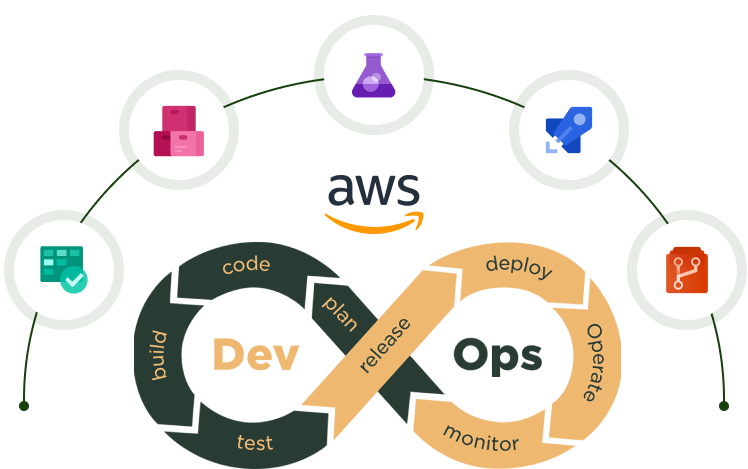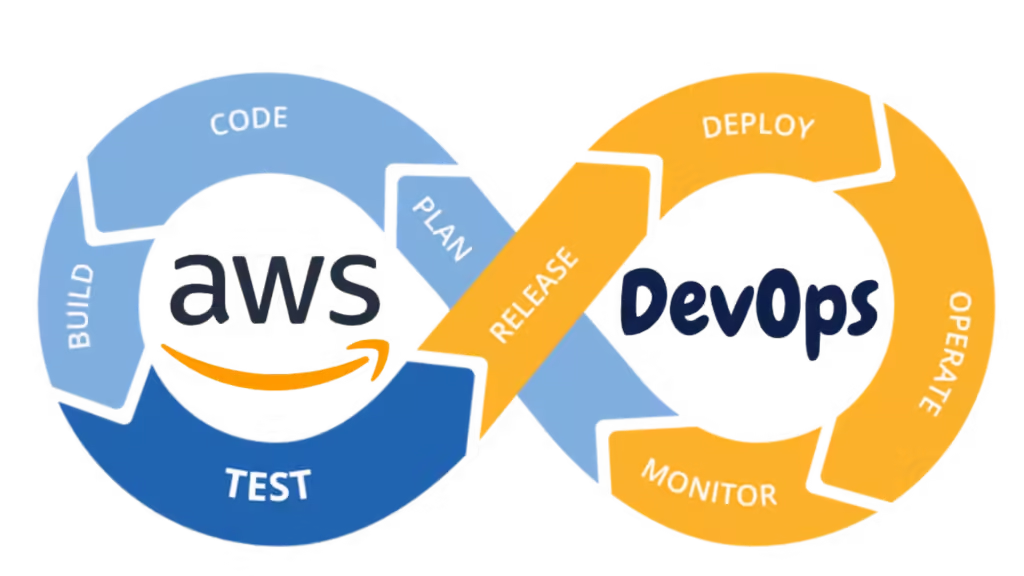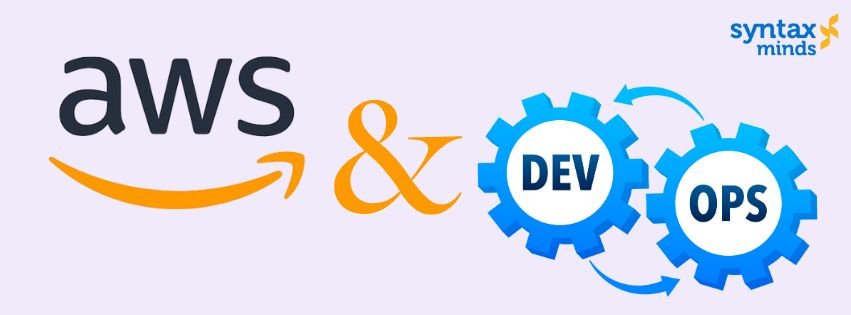Table of Contents
ToggleAWS AND DEVOPS
DevOps and AWS go hand in hand, as AWS provides a robust suite of tools and services that support DevOps practices. Here’s a breakdown of how they relate:
What is AWS?
Amazon Web Services (AWS) is a comprehensive cloud computing platform provided by Amazon. It offers a wide range of services, including computing power, storage, and databases, all designed to help businesses scale and grow. AWS provides the infrastructure necessary for modern application development and deployment.
What is DevOps?
DevOps is a cultural and technical movement that aims to improve collaboration between development and operations teams, enabling faster and more reliable software delivery. It emphasizes automation, continuous integration/continuous deployment (CI/CD), monitoring, and feedback loops.
Key Components of DevOps:
- Collaboration: Encourages teamwork between developers, operations, and other stakeholders.
- Automation: Automates repetitive tasks in the software delivery process to reduce errors and improve efficiency.
- Continuous Integration/Continuous Delivery (CI/CD): Streamlines the process of integrating code changes and deploying them into production.
- Monitoring and Feedback: Implements continuous monitoring of applications in production to gather performance metrics and user feedback.

How DevOps and AWS Work Together
AWS supports DevOps practices through a range of tools and services that facilitate automation, monitoring, and management of application lifecycles. Here’s how they integrate:
- Infrastructure as Code (IaC):
AWS CloudFormation: Allows you to define and provision AWS infrastructure using a declarative template language. This enables consistent and repeatable infrastructure deployments.
- Continuous Integration and Continuous Delivery:
AWS CodePipeline: Orchestrates the CI/CD pipeline, integrating with other AWS services like CodeBuild and CodeDeploy to automate the building, testing, and deployment of applications.
AWS CodeBuild: A fully managed build service that compiles code, runs tests, and produces ready-to-deploy software packages.
AWS CodeDeploy: Automates the deployment of applications to EC2 instances or on-premises servers, enabling rapid releases.
- Monitoring and Logging:
Amazon CloudWatch: Monitors AWS resources and applications, providing logs, metrics, and alarms to help you detect issues and improve performance.
AWS X-Ray: Analyzes and debugs distributed applications, helping you understand how your application and its underlying services are performing.
- Collaboration and Communication:
AWS Chatbot: Integrates with messaging platforms like Slack and Amazon Chime, allowing teams to receive alerts and manage AWS resources from within their preferred communication tools.
- Serverless Architecture:
AWS Lambda: Enables running code in response to events without provisioning or managing servers, making it easier to scale applications quickly.

AWS Tools for DevOps
AWS offers several services that align with DevOps practices:
- AWS CodePipeline: A CI/CD service that automates the build, test, and deploy phases of your release process.
- AWS CodeBuild: A fully managed build service that compiles source code, runs tests, and produces software packages.
- AWS CodeDeploy: Automates code deployments to any instance, including EC2 instances and on-premises servers.
- AWS CloudFormation: Enables IaC by allowing you to model and provision AWS resources using templates.
- Amazon EC2 & ECS: Provides scalable compute capacity for hosting applications and services.
- Amazon S3: Object storage for backup, archiving, and distributing content.
- AWS CloudWatch: Monitoring service for AWS resources and applications, offering insights into performance and operational health.
- AWS Lambda: Enables serverless computing, allowing you to run code in response to events without provisioning servers.

Benefits of Using AWS for DevOps
Scalability: Seamlessly adjust resources up or down to meet varying demand.
Flexibility: Choose the right tools and services for your specific use case.
Cost-Effectiveness: Pay only for the resources you use.
Global Reach: Deploy applications in multiple regions around the world for improved performance and redundancy.
Conclusion
By leveraging AWS’s extensive suite of tools, organizations can effectively implement DevOps practices to streamline their software development lifecycle, enhance collaboration, and accelerate delivery. Whether you’re a startup or an enterprise, the combination of DevOps and AWS can help you achieve greater agility and reliability in your software delivery processes.

